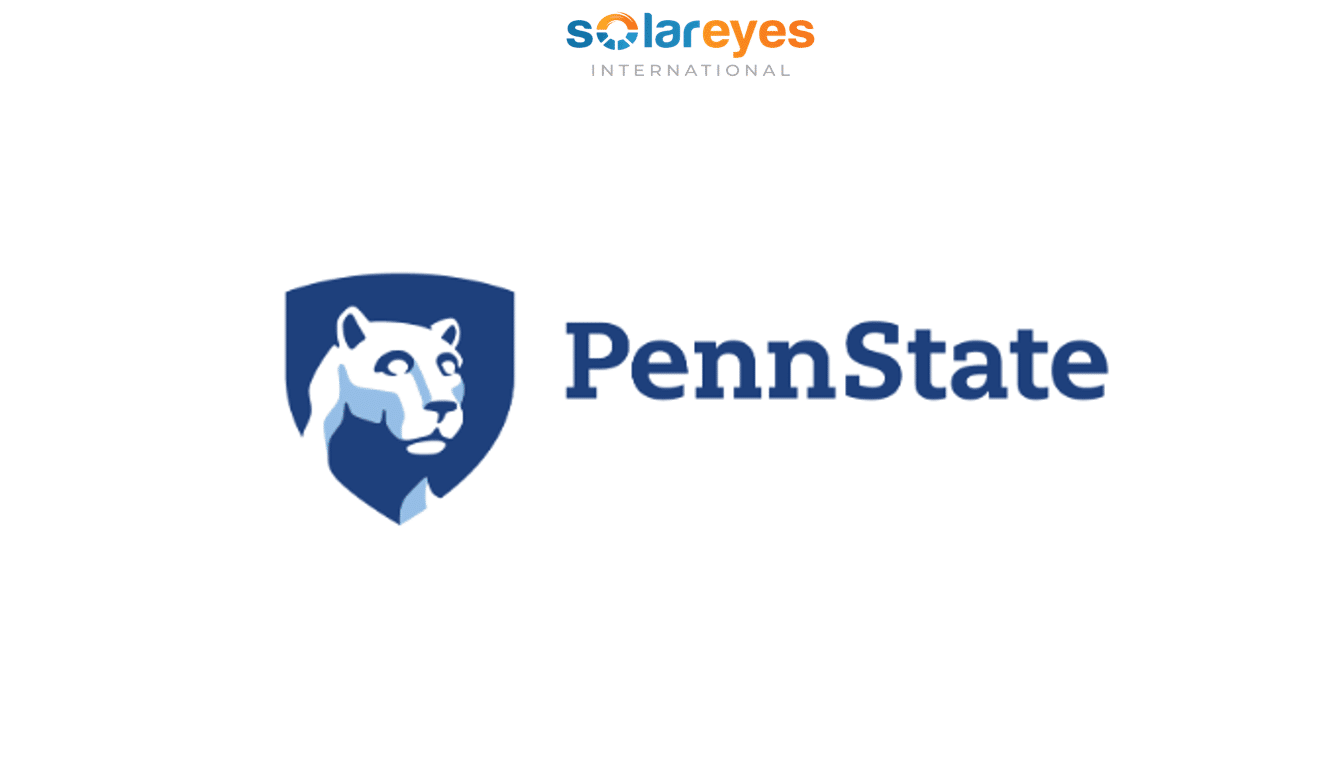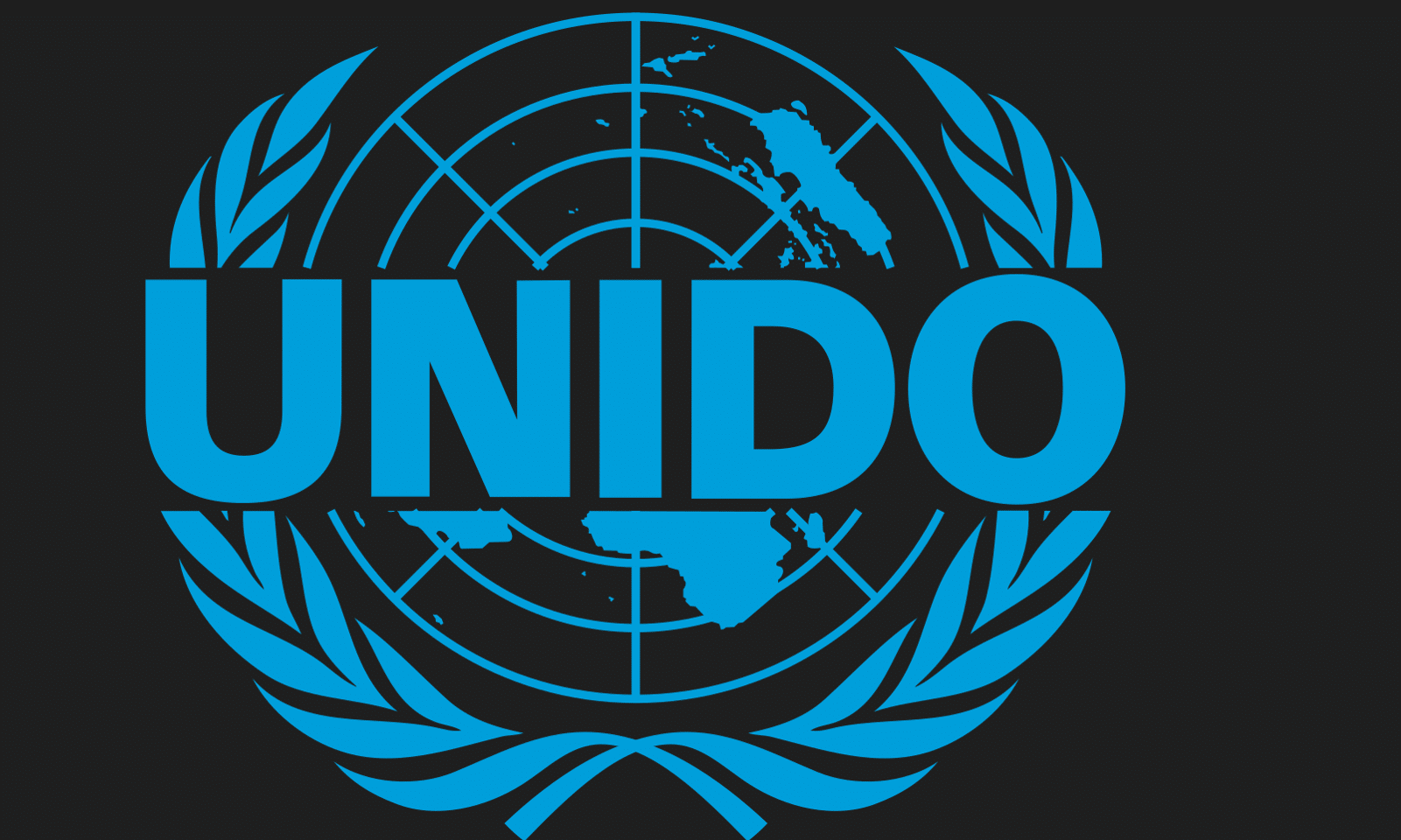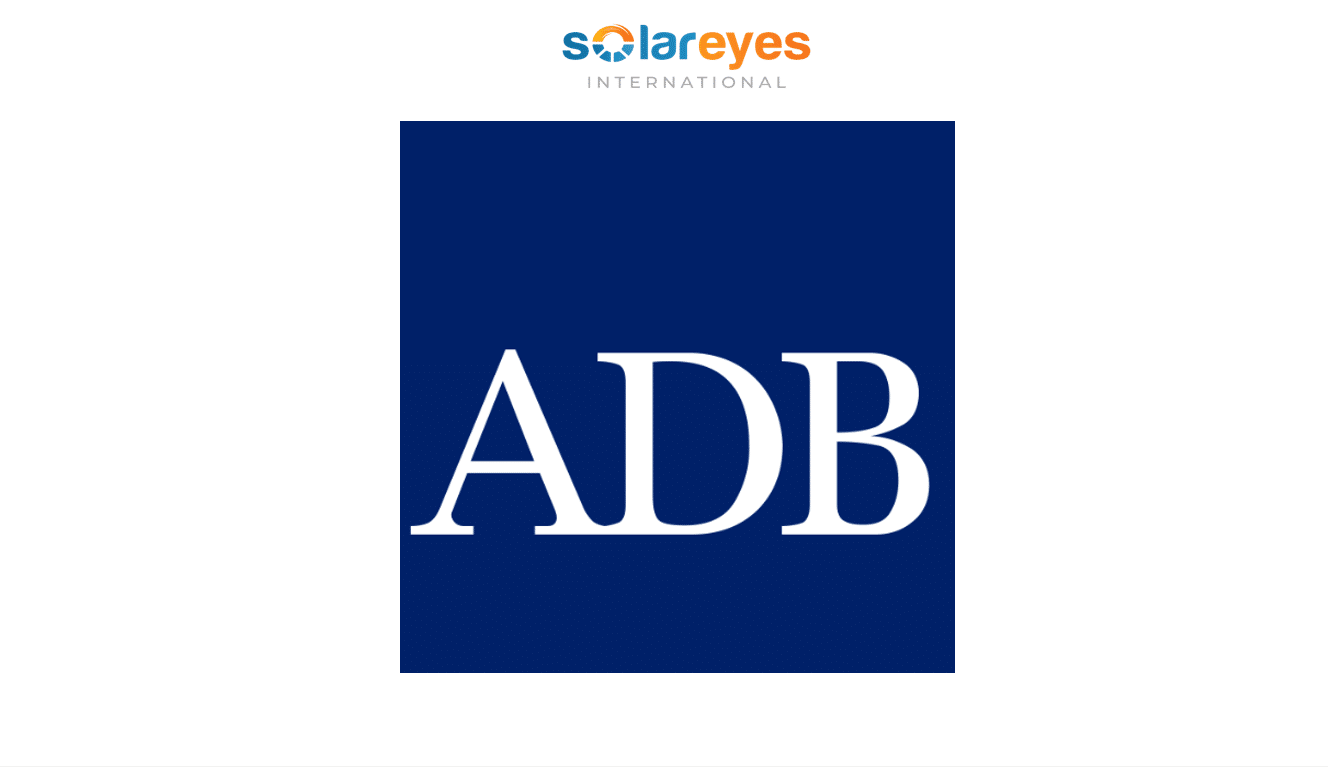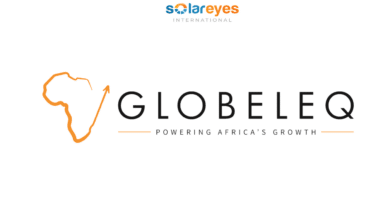Regional Technical Specialist for Climate Change Mitigation – UNDP, Addis Ababa, Ethiopia
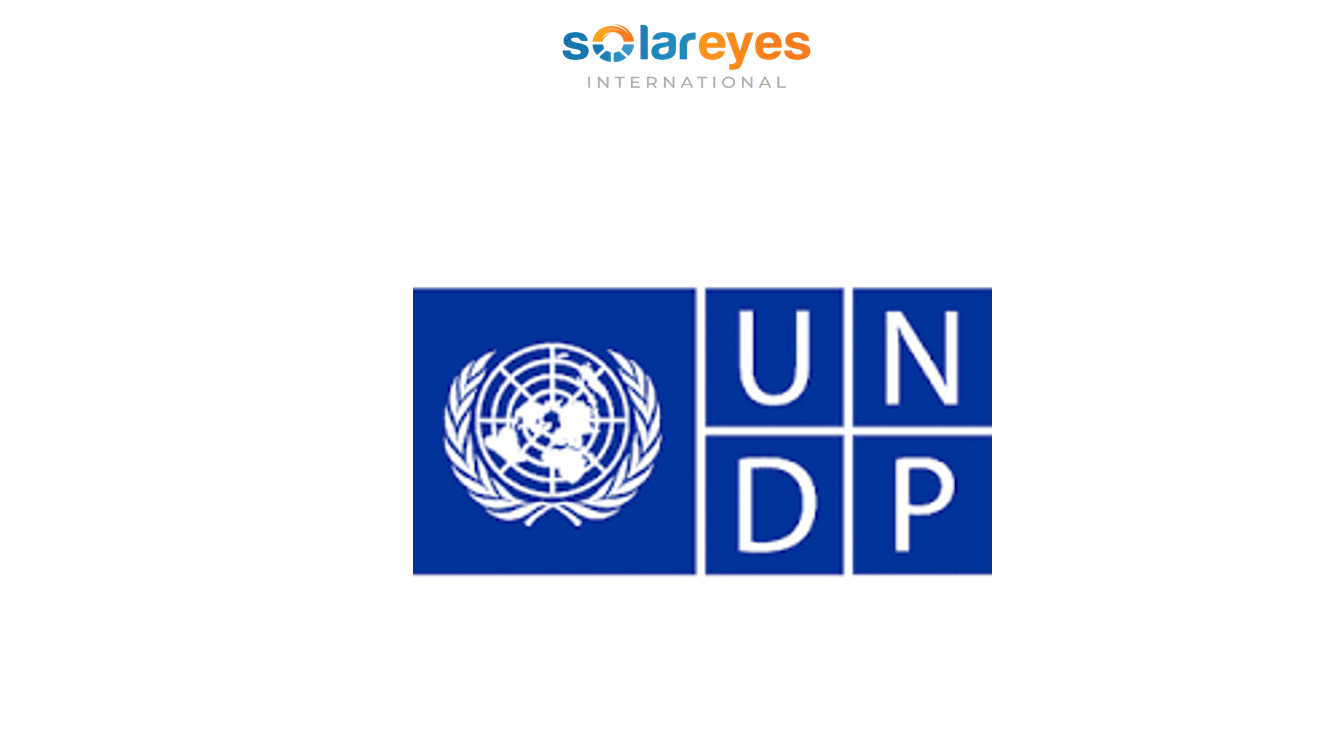
Regional Technical Specialist for Climate Change Mitigation – UNDP, Addis Ababa, Ethiopia
Locations: Addis Ababa, Ethiopia
Posting Date: 07/11/2023, 02:28 AM
Apply Before: 07/26/2023, 04:59 AM
Job Schedule: Full time
Agency: UNDP
Grade: P3
Practice Area: Nature, Climate and Energy
Regional Technical Specialist for Climate Change Mitigation – UNDP, Addis Ababa, Ethiopia
Job Description
Background
Diversity, Equity and Inclusion are core principles at UNDP: we value diversity as an expression of the multiplicity of nations and cultures where we operate, we foster inclusion as a way of ensuring all personnel are empowered to contribute to our mission, and we ensure equity and fairness in all our actions. Taking a ‘leave no one behind’ approach to our diversity efforts means increasing representation of underserved populations. People who identify as belonging to marginalized or excluded populations are strongly encouraged to apply. Learn more about working at UNDP including our values and inspiring stories.
UNDP does not tolerate sexual exploitation and abuse, any kind of harassment, including sexual harassment, and discrimination. All selected candidates will, therefore, undergo rigorous reference and background checks.
UNDP is the knowledge frontier organization for sustainable development in the UN Development System and serves as the integrator for collective action to realize the Sustainable Development Goals (SDGs). UNDP’s policy work carried out at HQ, Regional and Country Office levels offers a spectrum of deep local knowledge to cutting-edge global perspectives and advocacy. In this context, UNDP invests in its Global Policy Network (GPN), a network of field-based and global technical expertise across a wide range of knowledge domains and in support of the signature solutions and organizational capabilities envisioned in UNDP’s Strategic Plan.
Within the GPN, the Bureau for Policy and Programme Support (BPPS) has the responsibility for developing all relevant policy and guidance to support the results of UNDP’s Strategic Plan. BPPS staff provides technical advice to Country Offices, advocates for UNDP corporate messages, represents UNDP at multi-stakeholder fora, including public-private, government and civil society dialogues, and engages in UN inter-agency coordination in specific thematic areas.
BPPS’s Hubs on Nature, Climate, Energy and Waste, with the support of the Vertical Fund Programme Support, Oversight and Compliance Unit, works with governments, civil society, and private sector partners to integrate nature, climate, energy and waste related concerns into national and sector planning and inclusive growth policies, support country obligations under Multilateral Environmental Agreements, and oversee the implementation of the UN’s largest portfolio of in-country programming nature, climate change, energy and waste. This multi-billion-dollar portfolio encompasses:
- Biodiversity and Ecosystem Services including forests;
- Sustainable Land Management and Desertification including food and commodity systems;
- Water and Ocean Governance including SIDS;
- Climate Change Mitigation and Adaptation;
- Sustainable Energy;
- Extractive Industries;
- Chemicals and Waste Management;
- Environmental Governance and Green/Circular Economy and SCP approaches.
This work advances crosscutting themes on innovative finance, digital transformation, capacity development, human rights, gender equality, health, technology, and South-South learning.
In addition to UNDP’s bilateral partnerships in Nature, Climate, Energy and Waste, UNDP is an accredited multilateral implementing agency of the Green Climate Fund (GCF), the Multilateral Fund (MLF), the Adaptation Fund (AF) and the Global Environment Facility (GEF). As part of UNDP’s partnership with these vertical funds (VFs), UNDP’s Environmental Finance Unit supports UNDP’s Nature, Climate, Energy and Waste related Hubs and provides countries specialized integrated technical services for eligibility assessment, programme formulation, capacity development, policy advice, technical assistance, training and technology transfer, mobilization of co-financing, implementation oversight, results management and evaluation, performance-based payments and knowledge management services.
With its technical focus, UNDP’s Nature, Climate, Energy, and Waste (NCE&W) Hubs are organized into substantive technical teams (Biodiversity, Water and Oceans, Climate Change Mitigation, Climate Change Adaptation, Chemicals & Waste) with a Principal or Senior Technical Advisor (PTA/STA) being the team leader within each area. Each team leader supports and guides a team of Regional Technical Advisors (RTAs) or Specialists (RTSs). As well as being a member of a technical team, each RTA/RTS is also a member of a regional team, which consists of RTAs/RTSs from all technical teams working together under the leadership of a Regional Team Leader. The regional teams are based in regional hubs from where they support UNDP’s country offices and partners in their region. The technical teams are organized around core thematic areas of nature, climate, energy, and waste.
The Regional Technical Specialist (RTS) works under the overall supervision and leadership of the Principal Technical Advisor –Climate Change Mitigation Policy and Programming and in close collaboration with the Regional Team Leader for NCE&W based in UNDP’s Regional Hub in Addis Ababa, and with other Technical Specialists and Advisors at both global and regional levels. RTSs have global responsibilities in their area of specialized technical expertise but are deployed from Regional Hubs, normally close to the countries to which they provide most support.
The Regional Technical Specialist for Climate Change Mitigation will be based in Addis Ababa, Ethiopia and will be required to travel. RTSs may be periodically redeployed, in accordance with capability, consent, and due process, to a different duty station as needed.
Job Purpose and Organizational Context: Regional Technical Specialist for Climate Change Mitigation – UNDP, Addis Ababa, Ethiopia
The Regional Technical Specialist for Climate Change Mitigation is primarily responsible for providing technical, policy, and programming implementation support and oversight, and knowledge and capacity development services pertaining to the work of sustainable energy to UNDP country offices, and works with other UN agencies, governments and inter-governmental organizations, NGO’s, donors, the private sector, and many others.
Duties and Responsibilities
1. Innovation, Strategic Leadership, Dialogue and Advocacy (10%)
- Provide support to establishing and maintaining a strategic understanding of, and engagement with, the substantive technical issues, institutions, and processes within the region, including establishing contact with and developing strategic partnerships with other agencies, donors, NGO’s, the private sector, scientific institutions and the like;
- Contributing to identification, development and implementation of new strategic programming opportunities and partnerships in the area of sustainable energy, climate resilient infrastructure and low carbon transport;
- Participating in global retreats, focal area retreats, regional strategic planning, pipeline management exercises, etc.;
- Participating in cross-substantive area technical dialogue, common strategic visioning, mainstreaming, programming, and other collaboration within the regional team; Assisting in keeping the Regional Team informed of trends and issues with respect to the substantive technical area.
2. Programming and Management (20%)
- Supporting the development of strategic policy and guidance for strengthening UNDP Country Offices with sustainable energy, infrastructure and transport project design and implementation including alignment with national priorities;
- Assisting the development of and advocacy for specific policy analysis and development tools and guidance in support of programming and finance for energy, infrastructure and transport;
- Supporting the establishment of a trusted leadership role for Environmental Finance Unit within the region;
- Sourcing of technical expertise and support including assisting with the preparation of TORs, identification and evaluation of experts and reviewing reports;
- Contributing to regional retreats, focal area retreats, regional strategic planning, pipeline management exercises, etc.;
- Promoting gender equity/empowerment in programming opportunities;
- Helping to ensure that strategies and projects are aligned to country outcomes and UNDP corporate environment results in internal UNDP project tracking systems (e.g. ERBM);
- Maintaining quality/accuracy in data and project management (UNDP EF systems like PIMS), management of ATLAS Risks logs, portfolio delivery rates;
- Monitoring to ensure expected quality standards are maintained in project implementation reviews;
- Supporting the RCU to internalize lessons from evaluations in programming in the region.
3. Programming and Resource Mobilization (25%)
- Assisting the provision of timely quality information and technical advice on source of funds policies, priorities and activities;
- Draft, revise, finalize and help editing concepts and project documents for submission to donors;
- Supporting the coordination of design, preparation, submission and approval of project proposals and requests for project development financing;
- Support the liaison with potential (co)financing agencies and institutions.
4. Development Impact (30%)
- Assisting with inception, contracting and start-up of projects including establishment of indicators, benchmarks and work plans;
- Supporting UNDP country offices in the supervision, implementation, monitoring, evaluation, troubleshooting and adaptive management of approved projects, including preparing and reviewing annual reports and work plans;
- Maintaining project and portfolio information and corporate information systems;
- Developing guidance and tools for country offices to utilize in operationalizing projects inception, contracting and start up of projects including establishment of indicators, benchmarks and work plans;
- Functioning as surge capacity to COs, supporting Environmental Focal Points with urgent, pressing, complex and /or specific tasks in the context of energy, infrastructure, and transport programming.
5. Learning, Knowledge Management and Self Development (15%)
- Evaluating, capturing, codifying, synthesizing lessons and stimulating the uptake of best practices and knowledge, including the development of resource kits and other knowledge materials;
- Peer reviewing, commenting on, and seeking to improve, the technical quality of projects, policies, practices, guidelines, advisory notes, publications and the like;
- Assisting with preparation of regional Community of Practice meetings;
- Preparing and delivering training courses, as needed;
- Developing knowledge products of relevance to the Environmental Finance Unit’s support to countries on low emission climate resilient development in the area of energy, infrastructure and transport;
- Developing and carrying out a personal learning plan (5%).
Competencies: Regional Technical Specialist for Climate Change Mitigation – UNDP, Addis Ababa, Ethiopia
Core
Achieve Results:
- Set and align challenging, achievable objectives for multiple projects, have lasting impact.
Think Innovatively:
- Proactively mitigate potential risks, develop new ideas to solve complex problems.
Learn Continuously:
- Create and act on opportunities to expand horizons, diversify experiences.
Adapt with Agility:
- Proactively initiate and champion change, manage multiple competing demands
Act with Determination:
- Think beyond immediate task/barriers and take action to achieve greater results.
Engage and Partner:
- Political savvy, navigate complex landscape, champion inter-agency collaboration.
Enable Diversity and Inclusion:
- Appreciate benefits of diverse workforce and champion inclusivity.
Cross-Functional & Technical Competencies
Planet – Nature, Climate and Energy – Energy:
- Energy access;
- Energy planning, de-risking energy investment and financial appraisal;
- Market-based energy financing and practical application.
Planet – Nature, Climate and Energy – Climate Change Mitigation:
- Sustainable infrastructure;
- Concepts and application.
Business Direction & Strategy – Strategic Thinking:
- Ability to develop effective strategies and prioritized plans in line with UNDP’s objectives, based on the systemic analysis of challenges, potential risks, and opportunities, linking the vision to reality on the ground, and creating tangible solutions.
Business Management – Project Management:
- Ability to plan, organize, prioritize, and control resources, procedures, and protocols to achieve specific goals.
Business Management – Communication:
- Ability to communicate in a clear, concise, and unambiguous manner both through written and verbal communication; to tailor messages and choose communication methods depending on the audience.
- Ability to manage communications internally and externally, through media, social media, and other appropriate channels.
Business Management – Portfolio Management:
- Ability to select, prioritize and control the organization’s programmes and projects, in line with its strategic objectives and capacity; ability to balance the implementation of change initiatives and the maintenance of business-as-usual, while optimizing return on investment.
Business Management – Partnerships Management:
- Ability to build and maintain partnerships with wide networks of stakeholders, Governments, civil society and private sector partners, experts, and others in line with UNDP strategy and policies.
Required Skills and Experience
Education:
- Master’s Degree (or higher) in Engineering, Environmental Economics, Finance or Environmental Sciences or other closely related field.
Experience:
- Minimum of 5 years’ experience working with developing countries on one or more of the following: renewable energy, energy efficiency, energy transition, sustainable transport, energy access, climate/natural resources;
- Experience with donor-funded development projects;
- Experience working in or with developing countries;
- Direct experience in the design or implementation of donor-funded development projects is an asset;
- Direct experience with the design of GEF and/or GCF energy projects is preferable;
- Direct experience in energy finance is an asset;
- Experience working in Africa is an asset;
- Direct working experience in an international organization is an advantage, as is direct knowledge of UNDP policies, procedures, and practices.
Language Requirement:
- Excellent knowledge of the English language, with exceptional writing, presentation and communication skills;
- Knowledge of French would be an advantage.
Note:
Please note that continuance of appointment beyond the initial 12 months is contingent upon the successful completion of a probationary period.
Disclaimer
Important information for US Permanent Residents (‘Green Card’ holders)
Under US immigration law, acceptance of a staff position with UNDP, an international organization, may have significant implications for US Permanent Residents. UNDP advises applicants for all professional level posts that they must relinquish their US Permanent Resident status and accept a G-4 visa, or have submitted a valid application for US citizenship prior to commencement of employment.
UNDP is not in a position to provide advice or assistance on applying for US citizenship and therefore applicants are advised to seek the advice of competent immigration lawyers regarding any applications.
Applicant information about UNDP rosters
Note: UNDP reserves the right to select one or more candidates from this vacancy announcement. We may also retain applications and consider candidates applying to this post for other similar positions with UNDP at the same grade level and with similar job description, experience and educational requirements.
Non-discrimination
UNDP has a zero-tolerance policy towards sexual exploitation and misconduct, sexual harassment, and abuse of authority. All selected candidates will, therefore, undergo rigorous reference and background checks, and will be expected to adhere to these standards and principles.
UNDP is an equal opportunity and inclusive employer that does not discriminate based on race, sex, gender identity, religion, nationality, ethnic origin, sexual orientation, disability, pregnancy, age, language, social origin or other status.
MORE INFORMATION AND APPLICATION ON OFFICIAL LINK
FOLLOW US ON SOCIAL MEDIA
Follow us on LINKEDIN, FACEBOOK, TELEGRAM GROUP and WHATSAPP.
*** ALSO CHECK: HOW TO SIZE A SOLAR SYSTEM – 5 clear steps anyone can follow
HOW TO START A SOLAR COMPANY – do these 6 things and make money through solar
How to Identify Fake Solar Products
SOLAR PANEL LOSSES: All you Need to Know + Tips on how to avoid them



